Protect Your Investment: Maintenance Must-Dos to Keep Your Cadillac Warranty Valid
Congratulations on owning a Cadillac! You're not just driving a car; you're experiencing a legacy of luxury, performance, and cutting-edge engineering. This magnificent machine represents a significant investment, and like any valuable asset, it deserves diligent care. A crucial part of protecting that investment is understanding and adhering to the terms of your Cadillac's warranty. Your warranty is your shield against unexpected repair costs, but it's only as strong as your commitment to proper maintenance. Let's dive into the essential maintenance must-dos that will keep your Cadillac running flawlessly and ensure your warranty remains valid, giving you peace of mind for years to come.
Why Your Cadillac Warranty Matters
Your Cadillac warranty is more than just a piece of paper; it's a comprehensive agreement that covers specific repairs and replacements for a set period or mileage, protecting you from potentially costly manufacturing defects. Whether it's the Bumper-to-Bumper Limited Warranty, the Powertrain Limited Warranty, or any extended coverage, these guarantees are designed to give you confidence in your vehicle's reliability. However, this protection isn't unconditional. Manufacturers, including Cadillac, stipulate that owners must follow a strict maintenance schedule to keep the warranty active. Neglecting routine service is one of the quickest ways to void your coverage, leaving you personally responsible for repairs that would otherwise be covered. Understanding this fundamental link between maintenance and warranty validity is your first step towards smart ownership.
Understanding Your Owner's Manual: Your First Line of Defense
Think of your Cadillac owner's manual as the ultimate guide to your vehicle's health. It's not just a collection of instructions; it's the definitive source for everything you need to know about your specific model, including the manufacturer's recommended maintenance schedule. This manual outlines precise intervals for services like oil changes, tire rotations, fluid checks, filter replacements, and more, tailored to your Cadillac's engineering and your driving conditions. Failing to consult and adhere to these guidelines is a common mistake that can jeopardize your warranty. Take the time to read through it, understand its recommendations, and mark key service intervals. This seemingly small effort is crucial for maintaining your vehicle's performance and, most importantly, keeping your Cadillac warranty valid.
The Scheduled Service: Don't Miss a Beat
The cornerstone of warranty validity is adherence to Cadillac's recommended scheduled service intervals. These aren't arbitrary suggestions; they are meticulously planned to ensure every component of your luxury vehicle functions optimally. Key services typically include:
- Oil Changes: Regular oil and oil filter changes are critical for engine health. Modern Cadillacs often use an Oil Life Monitoring System, which accurately determines when an oil change is needed based on engine revolutions, temperature, and operating conditions. Follow its guidance, or adhere to the time/mileage interval specified in your manual.
- Tire Rotations and Pressure Checks: Regular tire rotations ensure even wear, extending tire life and improving handling. Proper tire pressure is vital for safety, fuel efficiency, and preventing undue stress on suspension components.
- Filter Replacements: Air filters (engine and cabin) and fuel filters need periodic replacement. Clean filters ensure optimal engine performance, better fuel economy, and a healthier cabin environment.
- Brake Inspections: Regularly check brake pads, rotors, and fluid levels. Worn brakes not only compromise safety but can also lead to more extensive (and expensive) repairs if neglected.
Missing any of these scheduled services can be grounds for a warranty claim denial, especially if the issue can be linked to the lack of maintenance. Always be proactive and consistent with your service appointments.
Fluid Checks and Replacements: The Lifeblood of Your Cadillac
Just as blood is essential to the human body, various fluids are the lifeblood of your Cadillac. Maintaining proper levels and quality of these fluids is non-negotiable for both performance and warranty protection. This includes:
- Engine Oil: As mentioned, vital for lubrication, cooling, and cleaning engine components.
- Transmission Fluid: Ensures smooth gear shifts and protects transmission components. Check your manual for specific service intervals, as some modern transmissions have 'lifetime' fluids, while others require periodic changes.
- Brake Fluid: Essential for braking system function. It can absorb moisture over time, reducing its effectiveness and potentially damaging components.
- Coolant/Antifreeze: Keeps your engine at optimal operating temperature, preventing overheating and freezing.
- Power Steering Fluid: (If applicable) Ensures smooth and responsive steering.
- Differential Fluid: For all-wheel drive models, maintains the health of the differential.
Regularly check fluid levels and follow your manual's recommendations for flushes and replacements. Using the correct type of fluid, as specified by Cadillac, is also paramount. Incorrect fluids can cause significant damage and will almost certainly void your warranty for related components.
Brakes and Tires: Safety and Warranty Go Hand-in-Hand
While often viewed through the lens of safety, proper maintenance of your brakes and tires also plays a critical role in maintaining your Cadillac warranty. Worn brake components can put undue stress on other parts of your braking system, potentially leading to issues that might not be covered if neglect is proven. Similarly, incorrectly maintained tires (improper inflation, lack of rotation) can affect suspension components, wheel bearings, and even steering, issues that could be denied warranty coverage if linked to tire neglect. Regular inspections of tire tread depth, tire pressure, and brake pad thickness are simple steps that protect both your safety and your financial investment.
Documentation is Key: Proof You've Done Your Part
This point cannot be stressed enough: keep meticulous records of all maintenance performed on your Cadillac. Every oil change, tire rotation, fluid flush, and inspection should be documented. This includes date, mileage, the services performed, and the parts used. If you have service done at a dealership or certified mechanic, they will typically provide a detailed invoice. If you perform any approved DIY maintenance, keep receipts for parts purchased and a log of the work. Should a warranty claim arise, having a complete, organized history of your vehicle's maintenance is your strongest defense against any potential denial. It proves you've upheld your end of the warranty agreement.
Using Certified Cadillac Service and Parts: The Smart Choice
While you aren't always legally required to have your vehicle serviced at a Cadillac dealership to maintain your warranty (thanks to the Magnuson-Moss Warranty Act in the U.S.), there are significant advantages to doing so. Cadillac certified technicians are specifically trained on your vehicle's intricate systems, using specialized tools and diagnostic equipment designed for your model. Crucially, they use genuine OEM (Original Equipment Manufacturer) Cadillac parts. Using aftermarket or inferior parts, especially for critical systems, can sometimes lead to component failure and could void your warranty if Cadillac can demonstrate that the non-OEM part caused the issue. Opting for certified service and genuine Cadillac parts provides an extra layer of assurance that the work is done correctly and with the right components, protecting your warranty and your vehicle's integrity.
DIY Maintenance: Proceed with Caution
For many car enthusiasts, performing basic maintenance tasks is a source of pride and a way to save money. For some routine tasks like checking fluid levels, tire pressure, or even changing your own oil (if you're knowledgeable and use the correct grade of oil and filter), DIY maintenance can be acceptable for warranty purposes, provided you document everything meticulously. However, for more complex repairs or scheduled services that require specialized tools or diagnostic equipment, it's always best to leave it to the professionals. Incorrectly performed DIY work, or using unapproved parts, can easily lead to damage that voids your warranty. When in doubt, always consult your owner's manual or a certified Cadillac technician.
Conclusion
Your Cadillac is a masterpiece of automotive engineering, designed to deliver an unparalleled driving experience. By diligently following its recommended maintenance schedule, understanding your owner's manual, documenting all services, and opting for certified care when necessary, you're not just preserving its performance and luxury; you're actively protecting your valuable investment. Adhering to these maintenance must-dos ensures that your Cadillac warranty remains valid, safeguarding you against unexpected repair costs and allowing you to enjoy the prestige and reliability of your vehicle for many cherished miles to come. Drive confidently, knowing you've done everything to keep your Cadillac in peak condition.
Where can I find my VIN?

Related Topics
- Is an Infiniti Extended Warranty a Smart Investment? A Cost-Benefit Analysis.
- Is the Infiniti Extended Warranty Worth the Cost? A Deep Dive into the Elite Protection Plan
- Warranties Explained: New vs. Certified Pre-Owned (CPO) INFINITI Coverage - Which is Right for You?
- New vs. CPO: A Head-to-Head Comparison of Infiniti Warranty Protection

